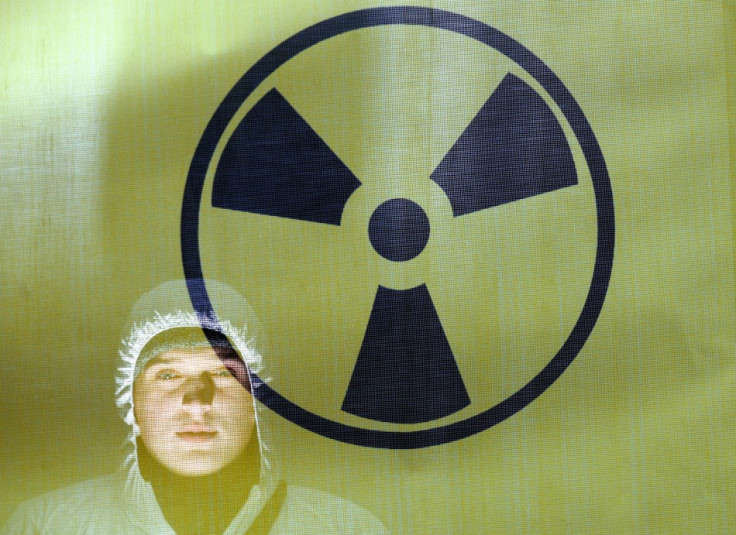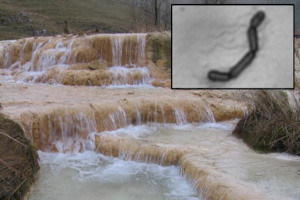Nuclear Diet: 'Extremophile' Bacteria that Eats Radioactive Waste Discovered in Peak District

Bacteria that feeds on hazardous radioactive waste has been discovered living in the Peak District.
Scientists at the University of Manchester say that for the first time, they have found microbes that can survive in the harsh conditions of radioactive waste disposal sites.
Getting rid of nuclear waste poses a big problem. Huge volumes will be encased in concrete before being disposed of in underground vaults. However, when groundwater reaches the waste materials they react with the cement to become highly alkaline, triggering chemical reactions that result in the production of isosaccharinic acid (ISA).
ISA can react with a wide range of unstable and toxic elements that are formed during the production of nuclear power. If it binds to radionuclides, such as uranium, then it becomes soluble and is more likely to flow out of the vaults and into the surrounding environment – potentially entering drinking water and the food chain.
Published in the Multidisciplinary Journal of Microbial Ecology, scientists found that tiny single celled organisms that live in a highly alkaline industrial site in the Peak District thrive in these conditions.

While the area does not have radioactive waste, the organisms are adapted to living in alkaline waste and can use ISA as a source of food under conditions that would be found in nuclear disposal sites.
Researcher Jonathan Lloyd said: "We are very interested in these Peak District microorganisms. Given that they must have evolved to thrive at the highly alkaline lime-kiln site in only a few decades, it is highly likely that similar bacteria will behave in the same way and adapt to living off ISA in and around buried cement-based nuclear waste quite quickly."
Researchers now plan to study the "extremophile" bacteria's unusual diet to better understand how it could aid the safe disposal of radioactive waste.
"Nuclear waste will remain buried deep underground for many thousands of years so there is plenty of time for the bacteria to become adapted," Lloyd said. "Our next step will be to see what impact they have on radioactive materials. We expect them to help keep radioactive materials fixed underground through their unusual dietary habits, and their ability to naturally degrade ISA."
© Copyright IBTimes 2025. All rights reserved.






















